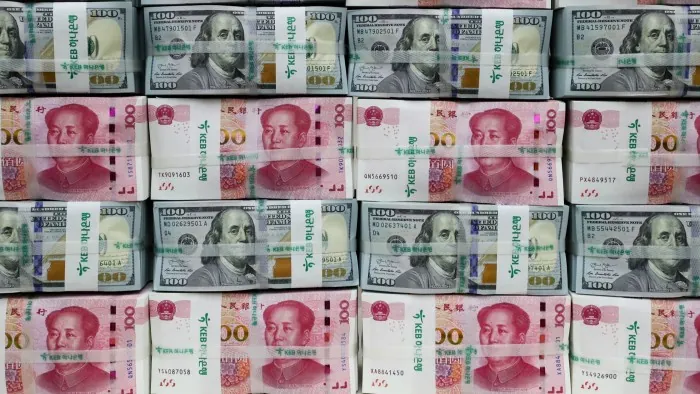
Chinese Yuan Plummets to 18-Year Low: A New Flashpoint in the Trade War?
2025-04-10
Author: Ming
In a dramatic turn of events, the Chinese renminbi has plunged to its lowest point in 18 years, sparking fresh concerns in the ongoing trade war between the United States and China.
On Thursday, the onshore renminbi fell to Rmb7.351 against the US dollar, marking the weakest exchange rate since 2007. Although it saw a brief recovery, the currency's drop indicates a serious market reaction to escalating trade tensions.
The People’s Bank of China (PBoC) has actively allowed the renminbi to weaken for six consecutive days, signaling a potential strategy to support exporters hit hard by tariffs. By permitting a controlled depreciation, authorities aim to mitigate the impact of US tariffs.
US Treasury Secretary Scott Bessent has weighed in, calling for China to avoid further currency devaluation, labeling it "a tax on the rest of the world." These comments come as pressures mount for a weaker renminbi amid the backdrop of Trump’s hardline trade policies.
The offshore renminbi, which is traded without restrictions, hit a record low of Rmb7.42 against the dollar just days ago—an alarming development following President Trump's sweeping tariff announcements.
In contrast, the Hong Kong dollar has surged, reaching its strongest position against the US dollar since 2021. This rise hints at an increasing trend of capital fleeing from mainland China to Hong Kong's more stable market.
As tensions simmer, Trump also declared a temporary 90-day halt on reciprocal tariffs for non-retaliating countries, yet raised tariffs on China substantially to 125%. Analysts fear these moves may incite a currency war, prompting other nations to devalue their currencies as well.
However, insiders close to China's currency management have downplayed fears of a drastic devaluation, suggesting that the Chinese government is not looking to destabilize markets or trigger capital flight, which could harm the domestic economy.
Despite the currency's struggles, the PBoC's adjustments have been modest following Trump's announcement of a universal tariff, suggesting a strategy centered on managing the renminbi's value rather than provoking market chaos.
Kaanhari Singh from Barclays emphasized that the aim seems to be an "orderly, controlled devaluation," aligning with the notion that significant currency changes are less likely, given China’s growing intra-regional trade and the desire to maintain stability among Asian trading partners.
As the situation continues to evolve, global markets are watching closely to see how the trade war dynamics play out.


 Brasil (PT)
Brasil (PT)
 Canada (EN)
Canada (EN)
 Chile (ES)
Chile (ES)
 Česko (CS)
Česko (CS)
 대한민국 (KO)
대한민국 (KO)
 España (ES)
España (ES)
 France (FR)
France (FR)
 Hong Kong (EN)
Hong Kong (EN)
 Italia (IT)
Italia (IT)
 日本 (JA)
日本 (JA)
 Magyarország (HU)
Magyarország (HU)
 Norge (NO)
Norge (NO)
 Polska (PL)
Polska (PL)
 Schweiz (DE)
Schweiz (DE)
 Singapore (EN)
Singapore (EN)
 Sverige (SV)
Sverige (SV)
 Suomi (FI)
Suomi (FI)
 Türkiye (TR)
Türkiye (TR)
 الإمارات العربية المتحدة (AR)
الإمارات العربية المتحدة (AR)